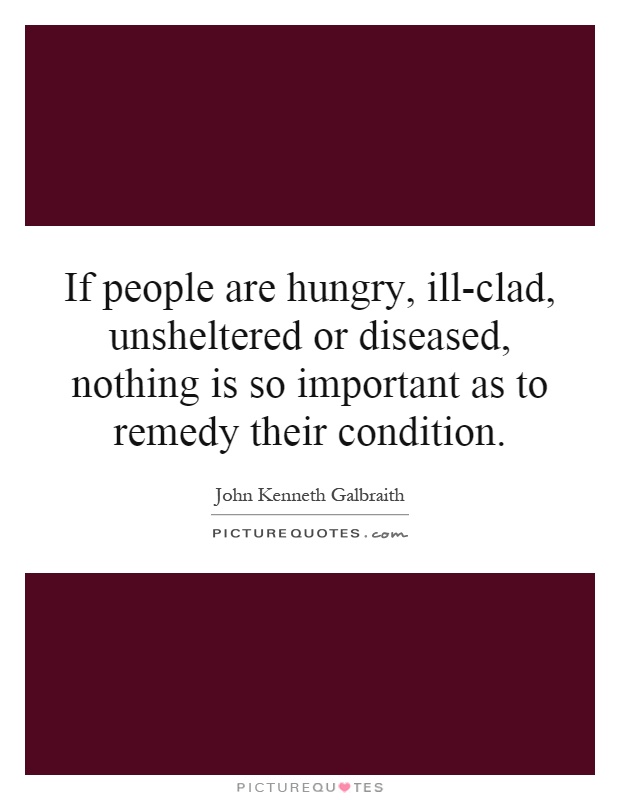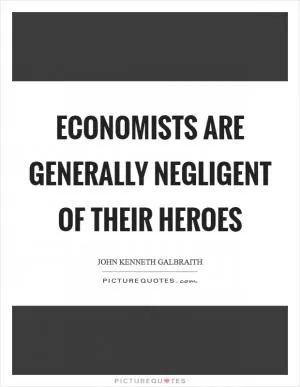If people are hungry, ill-clad, unsheltered or diseased, nothing is so important as to remedy their condition

If people are hungry, ill-clad, unsheltered or diseased, nothing is so important as to remedy their condition
John Kenneth Galbraith was a renowned economist and public intellectual who believed strongly in the importance of addressing the basic needs of individuals in society. His quote, "If people are hungry, ill-clad, unsheltered or diseased, nothing is so important as to remedy their condition," encapsulates his belief that the well-being of individuals should be the top priority for any society.Galbraith understood that when people lack access to basic necessities such as food, clothing, shelter, and healthcare, they are unable to fully participate in society and reach their full potential. He recognized that poverty and deprivation not only harm individuals, but also have negative consequences for society as a whole. When people are struggling to meet their basic needs, they are less likely to be able to contribute to the economy, participate in civic life, or reach their full potential.
Galbraith's quote highlights the importance of addressing the root causes of poverty and inequality in society. He believed that it was the responsibility of governments and society as a whole to ensure that all individuals have access to the basic necessities they need to live a dignified life. This includes not only providing immediate assistance to those in need, but also addressing the systemic issues that perpetuate poverty and inequality.
Galbraith's quote also emphasizes the interconnectedness of social issues. He understood that poverty, hunger, lack of access to healthcare, and inadequate housing are all interconnected and that addressing one issue often requires addressing others as well. For example, someone who is struggling to afford food may also be unable to afford healthcare or housing. By addressing these issues holistically, society can create a more just and equitable society for all.












 Friendship Quotes
Friendship Quotes Love Quotes
Love Quotes Life Quotes
Life Quotes Funny Quotes
Funny Quotes Motivational Quotes
Motivational Quotes Inspirational Quotes
Inspirational Quotes